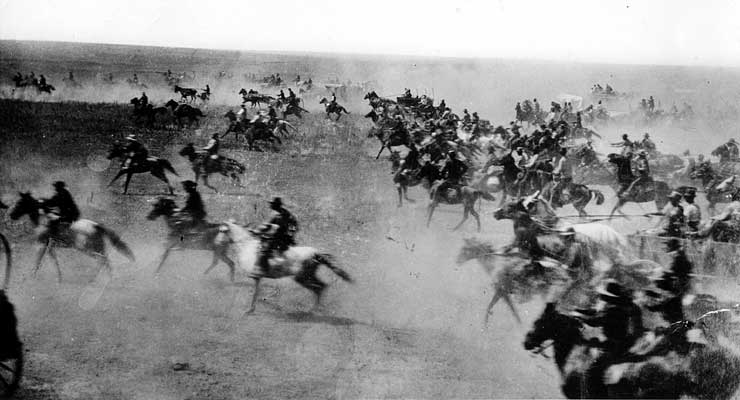CSKT Council pulls out of Flathead Reservation homesteading centennial celebrationBy Vince DevlinReversing an earlier decision, the Confederated Salish and Kootenai Tribal Council has elected not to participate in a commemoration this year of the 100th anniversary of the Flathead Indian Reservation being opened to homesteaders.
The decision will "significantly change" plans that were two years in the works, according to Lois Hart, president of the Polson Flathead Historical Museum.How the tribe feels:
The federal government's decision to open the land to homesteaders, successfully fought for more than two decades by Chief Charlo before it happened in 1910, is certainly seen in different lights by reservation residents who are tribal members, and those who are not.
"There are obviously mixed feelings about it," Hart said in a 2009 interview with the Missoulian.The outrage of land allotment:
Indian families were given first choice on 80- to 160-acre tracts of land. Some 2,460 signed up, but many more, upset that their reservation was being opened to white settlers, refused to participate.
Land left after the Indians had chosen their acreage was declared "surplus," and made available to nontribal members.Comment: This land rush opened up a particular reservation to the white man's thievery. How is that something to celebrate or even commemorate? Rather, we should be condemning it as one of the many outrages perpetrated on Indians by the US government.
For a similar controversy in Oklahoma, see
Countering Land Run Celebrations.
Below: The Oklahoma land rush. "We're rugged, self-reliant individualists who pull ourselves up by the bootstraps. Now give us our free Indian land, dammit!"



1 comment:
While in college, I participated in a discussion with regards to this very subject. The class was 20th Century Latino Literature and the students varied in genetic background. Given the college has one of the highest percentages of Native American students in the country, I can comfortably say that the class population represented a good amount of minority opinion. Two of us grew up in Oklahoma. I attended a school, that despite a name that you would find offensive and most likely stereotypical, did cater to tradition and tried to integrate Native American heritage/culture into the curriculum. How many people can say they attended a pep rally that had traditional Absentee Shawnee dancers in full regalia? However, when it came spring time, while I was in grade school, we would reinact the Oklahoma Land Run. Yes, Indians, African Americans, Asians, Caucasions would all get together at the start line, run to stake our little piece of the football field, then sit and eat our brown bag lunch. As children we saw nothing wrong with this, but as adults, we understand the irony. It's amazing what education does for you.
Post a Comment